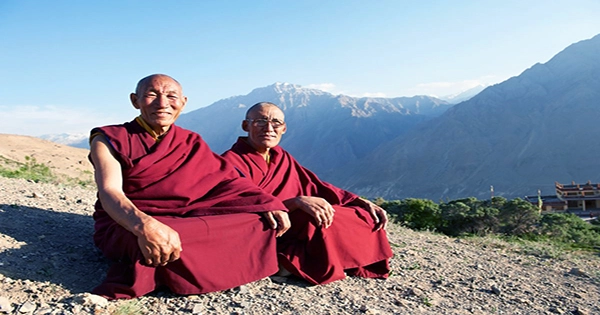Why would someone join a group that forbade them from having children and mandated celibacy? After all, reproduction is at the very core of the evolution that gave rise to humans. However, this is exactly what many religious institutions throughout the world demand. Anthropologists are now pondering how celibacy may have first originated in light of the practice. Since cooperation is another pillar of human evolution, some have argued that behaviors that are expensive to individuals, like never having children, can nonetheless arise when people mindlessly submit to rules that benefit a community.
Others have suggested that individuals eventually establish religious (or other) organizations to further their own narcissistic or familial interests and despise others who choose not to participate. Now, our recent study, which was done in Western China and was published in Royal Society Proceedings B, examines the topic of lifelong religious celibacy in Tibetan Buddhist monasteries.
Some Tibetan families would frequently transfer one of their young sons to the neighborhood monastery so that he may become a celibate monk for the rest of his life until recently. Up to one in seven boys in the past chose to become monks. Having a monk in the household was often justified by religious considerations. But were there additional factors related to the economy and reproduction? We conducted 530 family interviews in 21 villages in the eastern portion of the Tibetan plateau in Gansu province with the assistance of our Chinese partners from Lanzhou University. We recreated family trees, learning about each person’s ancestry and discovering whether any of their ancestors were monks.
Amdo Tibetans, who are patriarchal, live in these villages where they cultivate tiny pieces of land and keep herds of yaks and goats. In these societies, wealth is often handed through the male line. We discovered that guys who had a monk sibling were wealthy and owned more yaks. However, monastic nuns received little to no benefit. That is probably due to competition between brothers over their parents’ money, land, and animals. Parents ended this rivalry between their boys by sending one of their sons to the monastery because monks are not allowed to acquire property. While monks are often second or later born sons, firstborn sons typically inherit the familial home.
Surprisingly, we also discovered that men who had a monk brother had more children than men who had non-monk siblings, and their spouses tended to have kids sooner. As their non-celibate sons had little to no competition from their siblings, grandparents who had a monk son also had more grandchildren. Therefore, sending a son to the monastery is a custom that supports a parent’s goal in procreation rather than costing them money.














